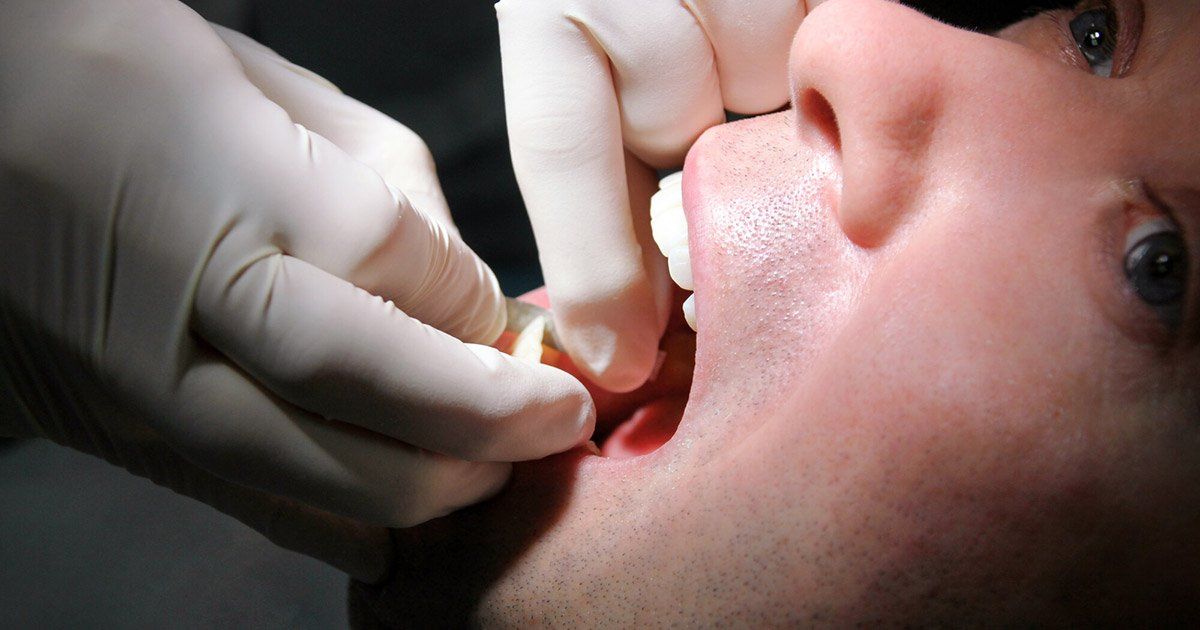What Is Root Canal Therapy?
A root canal is a treatment used to fix an infected or abscessed tooth. Read on to learn more about what root canal therapy is and its benefits.
There's nothing worse than the intense pain of a tooth infection. It keeps you up at night, with pain radiating down your jaw and even up into your ear.
There's a simple solution for this pain, and it only takes an hour. A root canal is a common procedure that will take away your pain, save your tooth, and ultimately prevent further health complications.
Root canals have become common procedures in the United States. Experts estimate that approximately
15 million root canals are performed every year in the US. By the time you've finished reading this article, you will be able to explain why this procedure is so common and how it can prevent all kinds of bigger health problems.
What Is a Root Canal?
When a dentist performs root canal therapy, they remove bacteria from an infected root canal. This procedure keeps the tooth from becoming reinfected and ultimately saves the tooth.
The procedure is a fairly simple one thanks to modern dental technology. A dentist or endodontist will first numb the area and then remove the inflamed or infected pulp. They will then clean and disinfect the area and fill and seal the tooth.
All total, the procedure will take 45 to 60 minutes. After receiving the proper local anesthetic, you won't feel a thing.
The pulp of your tooth that the dentist removes is the tissue that has nerves, blood vessels, and connective tissue. When your tooth first grows, it needs the pulp so it can fully develop. However, once your tooth has grown, it can still live without the pulp because the tissues surrounding it will nourish it.
You may simply want a dentist to remove the tooth when you have severe decay. However, a root canal can save the tooth. You will be able to chew more efficiently and have a natural appearance to your smile. Furthermore, the natural tooth in its right place will protect the surrounding teeth from excessive strain or wear.
Who Needs a Root Canal?
When something compromises the health of your tooth's pulp, you need a root canal. The pulp stretches from the top of your tooth that you can see in your mouth to the bottom of the tooth that extends to your jawbone. There are several reasons you may need a root canal:
- Chipped tooth
- Cracked tooth
- Severely decayed tooth
- Infected tooth
Any injury to a tooth or severe decay opens the possibility for a tooth infection known as a tooth abscess. This infection will cause your pulp to die, bone to deteriorate, and overall health to decline.
You'll know you have a tooth abscess because you will have severe pain. This pain will keep you up at night and prevent you from living a normal life. You may also develop a fever.
If you have severe tooth pain, see a dentist immediately. They will give you an antibiotic to start fighting the infection and then begin the process of a root canal to save your tooth. When you do not care for a tooth infection, you could get a much
bigger infection and suffer serious medical complications, even death.
How Much Does a Root Canal Cost?
Root canal costs vary depending on the complexity of your tooth problem. It also depends on which tooth needs the root canal. Because a molar sits in the back of your mouth and is more difficult to treat, a dentist will often charge more for a root canal on a molar.
If you have dental insurance, check your benefits. Most dental insurances cover root canal treatment costs.
When you're tempted to have your tooth pulled, reconsider this option. A missing tooth means you need to replace the tooth with a bridge or an implant so you can restore your chewing function. You also need a tooth in place to prevent nearby teeth from shifting.
In the end, the root canal will cost less and take less time than the long-term recovery of having a tooth pulled.
Recovering From a Root Canal
Once the dentist has finished your root canal, you can go home or back to work. The affected area will remain numb for a few hours after the procedure, so do not eat or drink anything until the numbness has subsided. You can also do a few things to minimize your recovery time and feel better after the procedure.
Elevate Your Head
The evening after your root canal, elevate your head. This will minimize any residual pain you have after the procedure. Continue to keep your head elevated for the first few nights.
Stay On Top of Pain
You will have some mild discomfort in your gums and jaws after the procedure, simply from having a dentist hold your mouth open for 45 to 60 minutes.
You can manage this discomfort with over-the-counter pain medication. Take the pain medication before you go into your procedure and then every six hours after the procedure for the first day.
Gargle to Prevent Infection
The gums around your root canal will be susceptible to infection. So gargle warm salt water regularly after your procedure. You may experience some more discomfort initially, but the salt water will keep your mouth clean and free of infection.
Stay Still
For the first few days after your procedure, do not engage in strenuous activities. Take 48 hours to rest your body. Then you can think about throwing the baseball around with your kids in the backyard.
Be kind to your mouth and your body in the days after the procedure. Stay away from foods that might irritate your gums or mouth. This would include extremely spicy foods or hard foods.
Choosing a Qualified Dentist in Ashburn, VA
You can best know how to choose a dentist in Ashburn by using basic common sense. If you need a root canal, look for a dentist that specializes in them.
Then, look at online reviews. See what other patients have to say about that dentist. Ask around your neighborhood or at work to see who others recommend.
Now that you can answer the question, "how do root canals work," you can walk into the procedure with confidence. You'll know what to expect and how to recover well.
Do your teeth hurt? Do you need a dentist that can give you the root canal you need? If so, contact us.
Our caring professionals will evaluate your oral health and then care for all your oral health needs. Give us a call and let us help you find pain relief and a healthier smile.














